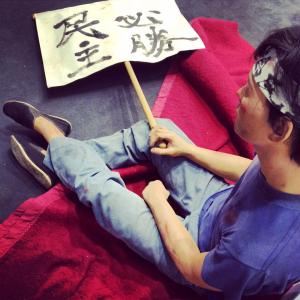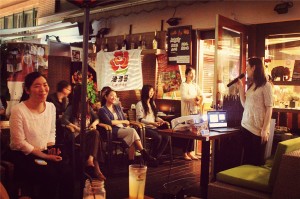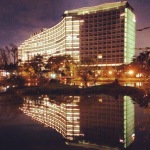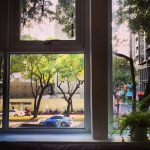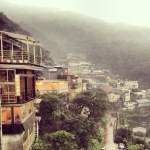There is no doubt that Chinese people are reluctant to jog their memories about the bloodshed on June 4, 1989. As explained by many, the collective silence is mostly due to people’s inner fears about any potential retaliation from the outwardly strong but quintessentially weak state, a giant in economy and military but a dwarf in democracy and freedom.
I
I wasn’t born when the pro-democracy movement unfolded in 1989. And June 4 did not reside in my memory until I was 12 years old.
In a scorching summer afternoon in 2002, my aunt took my brother and me to visit a friend of her. They had a long talk about a historical incident in 1989.
Now, neither can I clearly remember the details of their dialogues nor can I fathom the influence of that incident through their superficial words. What I can remember until now was that lady complained about her experience and fate and said a majority of college graduates in 1989 suffered hardship in finding decent jobs after the turbulence, enduring many difficulties in life.
II
Once upon a time, My mother inadvertently mentioned her brother, namely my uncle, had a narrow escape before the crackdown, the climax of a string of epic incidents, took place on June 4.
My uncle was one of the million student protesters on the square. As many of his peers, he stood up to show his discontent over official corruption and his desire for democracy and political reform in communist China.
As he wanted to celebrate his birthday peacefully, which was before the crackdown, he returned to his campus and then wasn’t permitted to leave for the square since his campus was sealed off strigently. Fortunately, he was safeguarded by his “selfish” behavior, escaping any possible brutal violence and the savage massacre appalling the entire world.
III
All my knowledge about June 4 was constructed upon other people’s narration. I, however, started to realize that these words from witnesses cannot satisfy my curiosity, because they could not bring me back to a scene where I could feel the intense atmosphere accurately.
Never did I have access to any picture or footage recorded during that period until several days before my high school entrance examination. When I was surfing the internet, I happened to click a link and watch a music video named The Blood is on the Square.
There are tears that flow in China
for her children that are gone.
There is fear and there is hiding,
for the killing still goes on.
And the iron hand of terror can
buy silence for today,
but the blood that lies upon the square
cannot be washed away.
Oh children, blood is on the square.
I repeated the music video twice and pressed the pause button at some extremely terrifying moments. The striking pictures along with the deep male voice rocked my heart and suddenly fueled my sympathy and anger.
My memory about the June 4 buried deep beneath my mind surfaced and presented an extremely bloody and desperate scene in front of my eyes. How could the state and party I was taught to love unconditionally be so inhumane?
I was plagued by the shock from the music video for the next few days. In order to alleviate my uneasiness in mind, I actively shared what I saw and heard with my one or two of my classmates and managed to seek for some comfort and relief from them. It did work.
IV
Thanks to the increasing convenience of internet and my self-learning “climb over the wall” skill, which made me possible to circumvent the Great FireWall via VPN proxy software, I was lucky that I could break away from the strict control of information temporarily. And I could read the Wikipedia page and many other historical documents about June 4 found from the internet.
Maybe since then, the brainwash strategy imposed on me failed. But, definitely, it still functioned toward many of my compatriots.
V
The CCP banned any discussion about June 4 in public, let alone publications involving this inglorious history. As a result, descriptions about this incident never be a part of my textbook.
To my surprise, my high school history teacher sketched this incident at class when imparting us the history after China’s implement of reform and opening up policy. It was rather unusual that such a old-fashioned person was willing to spend precious class time talking about something out of syllabus. I am really grateful for many people’s endeavor to show the dark side in history and to let young generation never forget the national wounds.
VI
When I continued my study at universities, I had more free time to read and more opportunities to learn about the truth behind the incident which shifted the trajectory of China’s recent history. Books like The prisoner of the State impressed me and ignited my true patriotism. Loving the vulnerable country rather than the strong but evil state has become one of my ingrained creeds.
Especially during my time in Hong Kong, I attended various seminar, film screening or exhibition with relevance to the incident, which expanded my horizon and insight on democracy and the future of China.
And I also spoke highly of the artistic creativity spawned by June 4. Songs like A Request to God by Tat Ming Pair, films like Summer Palace directed by Lou Ye and sculptures like Chinese Student by Duane Hanson are all legacies of the landmark incident.
Last year, on the 25th anniversary of June 4, for the first time I attended the vigil at Victoria Park, holding a fragile candle and singing those patriotic songs with a swarm of compatriots. It was a painstaking war against time and amnesia.
